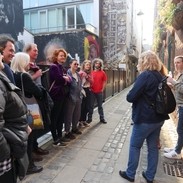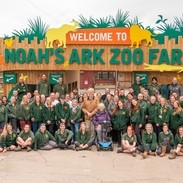Alcohol, entertainment and gaming licensing
VisitBritain/Andrew Pickett

Disclaimer
Disclaimer: While every effort has been made to ensure the accuracy of the information contained in the Pink Book, we regret that we cannot be responsible for any errors. The Pink Book contains general information about laws applicable to your business. The information is not advice, and should not be treated as such. Read our full disclaimer.
Key facts
If you wish to sell alcoholic drinks you will need a licence. This includes providing ‘free’ alcohol to customers.
There are two types of licence: premises licences and personal licences.
It is illegal to buy alcohol from a wholesaler who is not registered.
For gaming machines, other than skills with prizes (SWP) machines, you will need a licence or permit from your local licensing authority and possibly from the Gambling Commission.
Note: Due to COVID-19, there were significant short-term changes to licensing rules, including hours of operation and the ability to sell alcohol for off-premises consumption. These changes ended on 30 September 2022 and no longer apply.
Does the legislation apply to me?
If you wish to sell alcoholic drinks you will need an alcohol licence. It is an offence to sell intoxicating liquor without one.
Providing ‘free’ alcohol to guests
You need a licence to sell alcohol – this includes providing ‘free’ alcohol because it is an incentive to purchase and/or is included in your pricing structure. If you charge the customer to enter or stay at your premises, or for some other product that must be purchased in order to receive the free alcohol, this means that they are essentially paying for the alcohol that is provided. In other words, the customer has effectively paid a ‘consideration’ for that service. It is not free.
The Licensing Act 2003
The Licensing Act 2003 rationalised the previous licensing systems (in England and Wales) to produce a simpler system that is easier for all involved to understand.
Local authorities are required to consult on their statement of licensing policy every three years. Before applying for a licence, it is therefore important for you to read this policy. This will enable you to tailor your application to the local authority’s policy and thereby reduce the risk of your application being rejected.
Administration and enforcement
Administration and enforcement of the Licensing Act 2003 lies with local authorities (and other agencies where appropriate), for example fire safety, police, licensing officers, and environmental health. Each local authority has a licensing committee of 10 to 15 locally elected councillors who decide on licensing applications.
In practice, their responsibilities are devolved to a licensing manager and staff who deal with the administrative functions. All contested applications will be heard before a sub-committee of at least three members of that committee.
Licensing objectives
There are four principles which underpin the Licensing Act 2003 and impact everyone. They are:
- The prevention of crime and disorder;
- Public safety;
- The prevention of public nuisance;
- The protection of children from harm (including sexual exploitation).
These principles are the key elements to be addressed by applicants, local authorities, police and other statutory authorities, and objectors to your licence.
Licensable activities
Activities regulated by the Licensing Act 2003fall into one of the following four categories:
- The sale of alcohol;
- The supply of alcohol by or on behalf of a club;
- Provision of regulated entertainment;
- Provision of late-night refreshments.
The activities that tourism businesses should be familiar with are as follows:
Provision of regulated entertainment
Regulated entertainment includes many of the activities offered for the benefit of customers in, for example, attractions, public houses, hotels, guesthouses or club rooms at caravan parks. These may include:
- Dancing, either as a show for customers or as an activity for them to take part in.
- Films (defined as any showing of moving pictures) not being shown in a community premises.
- Plays.
- All indoor sporting events (physical skills must be a factor).
- Music, such as the public playing of recorded music (for example DJs) as an accompaniment to dancing. (See Live Music Act 2012 below).
Provision of late-night refreshment
Provision of late-night refreshment covers the supply of hot food or drinks from premises for consumption on or off premises between 11pm and 5am. This aspect is mainly focused on late-night takeaway premises, so an exception is made for the provision of refreshments by hotels, guesthouses, hostels and caravan sites.
However, if you have a restaurant which serves hot food and drinks to members of the public after 11pm, or are staging an event at an attraction where hot food and drink will be provided to customers such as a midnight movie, you will need to nominate this as one of your licensable activities. Should you have any doubts about what should be included as licensable activities, your local licensing authority will be able to give advice.
Temporary Event Notices (TENs)
A Temporary Event Notice (TEN) is a licence to hold one-off licensable activities in unlicensed premises, and is particularly useful for attractions that want to stage a limited number of licensable events during the year. A single event can last up to seven days, and you are limited to a maximum of five per year if you do not hold a personal licence or 50 if you do. No more than 20 TENs can be given to a single premises in any calendar year, and the total length of the events cannot exceed 26 days. Events covered by a TEN can only be attended by a maximum of 499 people, and there must be a minimum of 24 hours between consecutive events.
The Temporary Event Notice section of Gov.uk gives more information related to TENs and how to apply for one.
Types of licences
There are two types of licence:
- Premises licence: required for any premises that offer any of the licensable activities previously described.
- Personal licence: a separate, portable system of personal licences that provides authority to sell alcohol. Personal licences are valid indefinitely and do not need to be renewed. A designated premises supervisor, who must be a personal licence holder, must be nominated for any premises where the licence includes permission to sell alcohol. In order to obtain a personal licence the applicant must be:
- Aged 18 or over;
- Possess an accredited licensing qualification;
- Not have forfeited a personal licence within five years of the application;
- Not have been convicted of any relevant offence.
To sell alcohol on your premises, you are required to have a premises licence and for at least one person to have a personal licence. That person does not have to be present on the premises to oversee the sale of alcohol, but is responsible for any sales made by other members of your staff.
Applying for a premises licence
Your application must embrace the four licensing objectives and you will need to assess any risks associated with each activity you propose to offer.
Advice can be obtained from the relevant statutory authority to achieve this, for example consulting a Fire Safety Officer about the means of escape under the public safety objective. The police may require CCTV or door supervisors (usually for premises which stay open until the early hours) under the prevention of crime and disorder objective. Environmental Health Officers may offer advice on noise arising from any associated music under the prevention of public nuisance objective.
All statutory authorities and your neighbours/local businesses must also confine themselves to the four licensing objectives if they make any representation or objections.
Application process
Applications are made to the local licensing authority where the premises are located. The forms will be available from the local authority’s website and can be downloaded for completion together with guidance notes.
While the forms are relatively straightforward, you may wish to engage the services of a specialist licensing solicitor or consultant to assist you. The application can be made by anyone who undertakes, or proposes to undertake, any business involving licensable activities. It includes limited companies or partnerships. If the application is made by an individual, that person must be at least 18 years of age.
You can apply for any of the licensable activities which are applicable to your business. Be mindful, however, that you also have to serve a copy to the following statutory authorities:
- The Chief Officer of Police;
- The body recognised as responsible for the protection of children;
- Trading Standards officers;
- Local planning authority;
- Environmental health authority;
- Health and safety authority;
- Fire and rescue authority.
They will all wish to see that your premises and the activities you ask for are compatible.
For details of the responsible authorities in your area, contact your local licensing team. Details may also be available on your local authority’s website.
Consultation
You are required to consult with your neighbours and local businesses in the area when seeking to gain a licence or to vary an existing licence. This can be done by placing an advert in a local newspaper, setting out the brief details of your application, and displaying a notice on your premises that advertises details to passers-by. The guidance notes will give advice on these procedures.
The consultation process lasts for 28 days, commencing on the day you submit the application to the local authority. Copies to the other statutory authorities (mentioned above) must be served at the same time.
Provided that there are no unresolved objections or representations, the licensing authority will automatically issue your premises licence without you having to attend any meetings. Should there be any representations or objections which cannot be resolved by negotiation, the licensing authority will hold a hearing within 20 working days (from the end of the consultation period) to determine the application.
Fees
There are two sets of fees when applying for a premises licence. Both are based on rating bands, and whether the primary or main purpose of the premises is to sell alcohol.
- The first fee is the cost to apply or to vary a licence.
- The second fee is the annual charge once the licence has been granted.
Once issued, the licence effectively lasts for as long as your business operates. The licence can be transferred from one licence holder to another. Again, the forms and guidance notes can be accessed on the local authority’s website.
The Alcohol Licensing section of Gov.uk offers information related to the Licensing Act 2003 and the application process.
Variations to licences
Once a licence has been granted, licensees are required to operate within the conditions of the licence. If you would like a minor variation to these conditions, a simplified application process exists for this purpose. This process can only be used for variations that could have no adverse impact on any of the four licensing objectives.
For example, a Minor Variation Application could not be used in the following situations:
- To extend the period for which the licence or certificate has effect.
- To transfer the licence to other premises.
- To specify, in a premises licence, an individual as the premises’ supervisor.
- To add the sale by retail or supply of alcohol as an activity.
- To authorise the sale of alcohol at any time between 11pm and 7am.
- To authorise an increase in the amount of time on any day during which alcohol may be sold.
The cost of applying for a Minor Variation Application has been set at £89, and the maximum time that licensing authorities are able to take to process the application has been set at 15 days. Unlike a major variation to a licence, there is no requirement to advertise or make other ‘responsible authorities’, such as the police, aware of your intention to seek a minor variation.
Mandatory Code for the sale of alcohol
In addition to the provisions of the Licensing Act, if you sell alcohol you are also required to comply with a Mandatory Code. This code:
- Bans businesses from undertaking irresponsible promotions that encourage people to drink quickly, or to drink more than they otherwise would. Examples include ‘all you can drink for £10’ or ‘free drinks when a football team scores’.
- Bans drinks being poured directly into customers’ mouths, known as a ‘dentist’s chair’.
- Requires operators to supply free tap water to customers.
- Requires businesses that sell alcohol to have an age-verification policy in place, and to check the ID of anyone who looks under 18.
- Requires businesses to sell alcohol in small measures (a half pint for beer and cider, 25ml or 35ml for spirits and 125ml for wine) as well as larger measures.
- Bans the sale of alcohol below the ‘permitted price’, which is defined as alcohol duty plus VAT. The Home Office has published the guide Guidance on banning the sale of alcohol below the cost of duty plus VAT to help businesses calculate the cost of duty and VAT for a range of products.
How long can I stay open?
While the Licensing Act created the opportunity to stay open 24 hours, very few premises (with the exception of supermarkets) actually operate these hours. You can apply to have any of the licensable activities on your premises starting and finishing at any time to suit you and/or your customers.
Bear in mind that the statutory authorities and your neighbours have to be notified and may not agree with your proposals. Common sense usually applies, and many establishments have extended their operating hours by perhaps one or two hours.
Who can I sell alcohol to?
Children aged 16 and 17 can consume alcohol as long as it is beer, cider or wine, it has been purchased for them by an adult, and it is consumed with a table meal. The adult must be with the child at all times.
You can also decide at what age children are allowed into the licensed areas of your premises. Therefore babies and very young children can be in your bar/restaurant, on the condition that they are accompanied by an adult.
Alcohol Wholesaler Registration Scheme
In response to the growing problem of counterfeit alcohol, the Government has introduced the Alcohol Wholesaler Registration Scheme. All wholesale sellers of alcohol are required to register with HMRC. On registration, wholesalers receive a Unique Reference Number (URN) as proof that they are legally able to sell alcohol to businesses.
It is illegal to buy alcohol from a wholesaler who is not registered and able to provide you with their URN (you can check online whether a wholesaler is approved). If you buy your alcohol from an unregistered business, then you may be liable for a criminal or civil penalty and your alcohol may be seized. You must keep records to prove you have checked that your supplier is registered with HMRC.
Note: there is one important exemption to this scheme. Retailers who make occasional trade sales of alcohol are excluded, meaning that if you buy your alcohol from a supermarket or off-licence, then they will not be registered and you don’t have to check their URN registration.
Pavement licences
A pavement licence is granted by the local authority and allows businesses in England such as cafes, restaurants and bars to place furniture on the pavement adjacent to their licenced premises. This is a streamlined process brought in during the Covid-19 pandemic to allow businesses to secure these licences quickly and help with business recovery.
For a fixed fee of £100, subject to a short seven-day consultation period, businesses may use this licence to place the following furniture on the pavement outside their premises:
- Counters or stalls for selling or serving food or drink;
- Tables, counters or shelves on which food or drink can be placed;
- Chairs, benches or other forms of seating, and;
- Umbrellas, barriers, heaters and other articles used in connection with the outdoor consumption of food or drink.
Local authorities can grant these licences for a period of 12 months or until 30 September 2023, whichever is the shorter. After 30 September 2023, all licences issued under this mechanism will expire.
Live Music Act 2012
The Live Music Act 2012 exempts small licenced venues with audiences of up to 200 (including attractions, accommodation establishments, pubs, restaurants and community halls) from requiring a separate special licence to hold live shows with amplified music between 8am and 11pm. It also removes the need for a licence for unamplified live performances between 8am and 11pm in all venues.
However, operators will still have to gain a licence for any alcohol sales at such an event, and comply with any restrictions on the performances that are imposed by the licensing authority.
Gaming machines
The installation and use of gaming machines is covered by the Gambling Act 2005. Under this Act, ‘gaming’ means ‘playing a game of chance for a prize’.
Skill With Prize machines (SWPs)
There are some machines that fall outside the Gambling Act 2005. Skill With Prize machines (SWPs) are not classified as gaming machines because they are deemed to be a game of skill, rather than a game controlled by chance.
These are machines where the customer displays a skill in order to win, rather than there being a large element of chance. An example of an SWP is a quiz machine found in pubs that tests the customer’s knowledge. Some crane grab machines can also operate on a skill only basis, but must utilise a ‘compensator’ to regulate the number of prizes and are therefore games of chance and rules apply to their location, maximum permitted stake and prize (see below).
The vast majority of skill-based games, such as basketball-type games, are found in Family Entertainment Centres (more commonly known as seaside amusement arcades) but can be sited anywhere.
Gaming machine classification
The legislation regarding gaming machines is complex and there are a wide range of categories for gaming machines.
Category A, B1, B2, B3, B3A and B4 machines
Machines in categories AtoB4 can only be used in a limited range of premises, such as casinos, betting shops, some membership clubs and Adult Gaming Centres (B4 machines).
Category C and D machines
This section relates to Category C and D gaming machines, which are mainly found in Family Entertainment Centres and pubs. The following table shows the range of Category C and D machines and the maximum stake and prizes for each type of machine.
Category | Maximum stake | Maximum prize |
C | £1 | £100 |
D money prize | 10p | £5 |
D non-money prize (other than crane grab machine) | 30p | £8 |
D non-money prize (crane grab machine) | £1 | £50 |
D combined money and non-money prize (other than coin pusher or penny falls machines) | 10p | £8 (of which no more than £5 may be a money prize) |
D combined money and non-money prize (coin pusher or penny falls machine) | 20p | £20 (of which no more than £10 may be a money prize) |
Category C machines must be restricted to people aged 18 and over. There is no age restriction related to the use of category D machines.
Return To Player (RTP)
Category C and D machines must display the ‘theoretical target percentage return to player’ as well as a declaration of their category.
Return To Player (RTP) is an average measured over a large number of games, and will vary over a typical session due to normal game volatility. It is up to the manufacturer to decide upon the game RTP and there is no minimum requirement, but the minimum average return must be displayed to the player for the game.
Gaming Licensing
Family Entertainment Centre operating licence
Premises which are entirely or mainly used for making gaming machines available for use, such as small arcades (whether that be stand-alone arcades or arcades incorporated into larger premises such as a holiday park or attraction) are known as Family Entertainment Centres (FEC).
If you want to install any category C machines, you will need a Family Entertainment Centre operating licence (FEC licence), which is issued by the Gambling Commission. This licence allows you to operate an unlimited number of Category C and D gaming machines on a location that is open to all ages. However, Category C machines must be in a segregated part of the premises that is supervised, to prevent children and young people accessing those machines.
The cost of this licence is £1,406, for premises with an annual gross gambling yield of up to £7.5m.
Unlicensed Family Entertainment Centres
If you want to run a Family Entertainment Centre that just operates Category D gaming machines, you do not need an FEC licence from the Gaming Commission. However, you will need an Unlicensed Family Entertainment Centre permit from your licensing authority.
Premises licence
If you have an alcohol licence for the premises, you are automatically entitled to install two Category C or D gaming machines upon notification to the local licensing authority of your intention to make gaming machines available for use. If you would like further machines, you need to apply to the licensing authority. Once you have installed machines you will also have to inform the licensing authority if you change the number or category of machines sited.
If the provision of gambling facilities is not the primary function of your business, and you would like to install just category D machines, then you will only need a gambling permit rather than a premises licence.
You should check the licensing requirements on your licencing authority’s website as to the range of licences and permits available, and review their gambling statement or policy before you apply.
Further guidance
Alcohol licensing
Further information on all aspects of the Licensing Act 2003 is available on Gov.uk.
Pavement licences
Guidance on the updated process for pavement licences is available on Gov.uk.
Your local authority
Information on licensing authority requirements is available from your local council.
Gambling Commission guidance
The Gambling Commission publishes guidance on all aspects of the Gambling Act 2005 and the requirements associated with installing gaming machines.
The Purple Guide
The Events Industry Forum publishes The Purple Guide, with advice for staging events on your premises, from safety to waste disposal.







